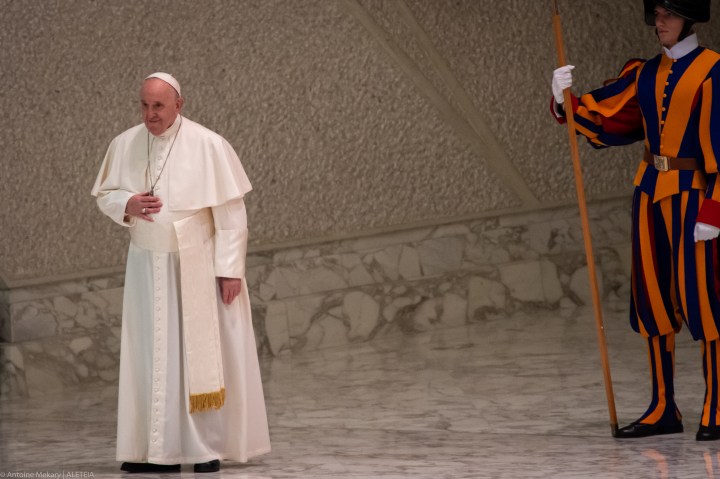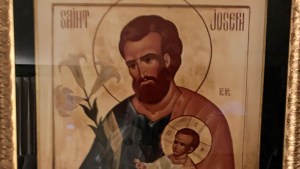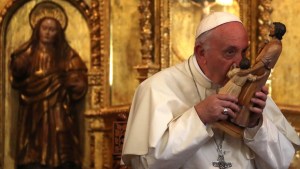Pope Francis says that never in history has St. Joseph had so much “support, consolation, and guidance” to offer us — marked as we are by “a global crisis made up of several components.”
So in these last few weeks of the Year of St. Joseph that he declared, and following up on his apostolic letter Patris corde, Francis has decided to dedicate the Wednesday audiences of the next few weeks to the theme of Joseph.
On November 17, he began with two biblical observations:
1A man of Providence
There are more than 10 people in the Bible who bear the name Joseph. … The name Joseph is Hebrew for “may God increase, may God give growth.” It is a wish, a blessing based on trust in providence and referring especially to fertility and to raising children. Indeed, this very name reveals to us an essential aspect of Joseph of Nazareth’s personality. He is a man full of faith, in providence: he believes in God’s providence, he has faith in God’s providence. His every action, as recounted in the Gospel, is dictated by the certainty that God “gives growth,” that God “increases,” that God “adds”: that is, that God provides for the continuation of his plan of salvation. And in this, Joseph of Nazareth is very similar to Joseph of Egypt.
2A man of the House of Bethlehem
The first geographical reference to Joseph, Bethlehem and Nazareth, also assume an important role in our understanding of him.
In the Old Testament, the city of Bethlehem is called Beth Lechem, that is, “House of bread,” or also Ephrathah, after the tribe that settled there. In Arabic, however, the name means “House of meat,” probably because of the large number of flocks of sheep and goats in the area. … In the light of the story of Jesus, these allusions to bread and meat refer to the mystery of the Eucharist: Jesus is the living bread descended from heaven (cf. Jn 6:51). He will say of himself: “He who eats my flesh and drinks my blood has eternal life” (Jn 6:54).
Bethlehem is mentioned several times in the Bible, as far back as the Book of Genesis. Bethlehem is also linked to the story of Ruth and Naomi, told in the short but wonderful Book of Ruth. Ruth bears a son named Obed, to whom in turn Jesse is born, the father of King David. And it was from the line of David that Joseph, the legal father of Jesus, descended. Then the prophet Micah foretold great things about Bethlehem: “You, Bethlehem of Ephrathah, who are so little to be among the clans of Judah, from you shall come forth for me one who is to be ruler in Israel” (Mi 5:1). The evangelist Matthew would take up this prophecy and connect it to the story of Jesus as its evident fulfilment.
3A man of the peripheries
Francis also reflected on St. Joseph as a man of the peripheries. “Jesus was not born in Jerusalem, with all the court… no, he was born in a periphery and spent his life, until the age of 30, in that periphery, working as a carpenter like Joseph. For Jesus, the peripheries and marginality were favored,” the Pope said.
Joseph, who is a carpenter from Nazareth and who trusts in God’s plan for his young fiancée and for himself, reminds the Church to keep her eyes on what the world deliberately ignores. Today Joseph teaches us this: “Do not look so much at the things that the world praises, look into the corners, look in the shadows, look at the peripheries, at what the world does not want.”
He reminds each of us to consider important what others discard. In this sense he is truly a master of the essential: he reminds us that what truly matters does not attract our attention, but requires patient discernment to be discovered and appreciated. To discover what matters.
Let us ask him to intercede so that the whole Church may recover this insight, this ability to discern, this capacity to evaluate what is essential. Let us start again from Bethlehem, let us start again from Nazareth.




